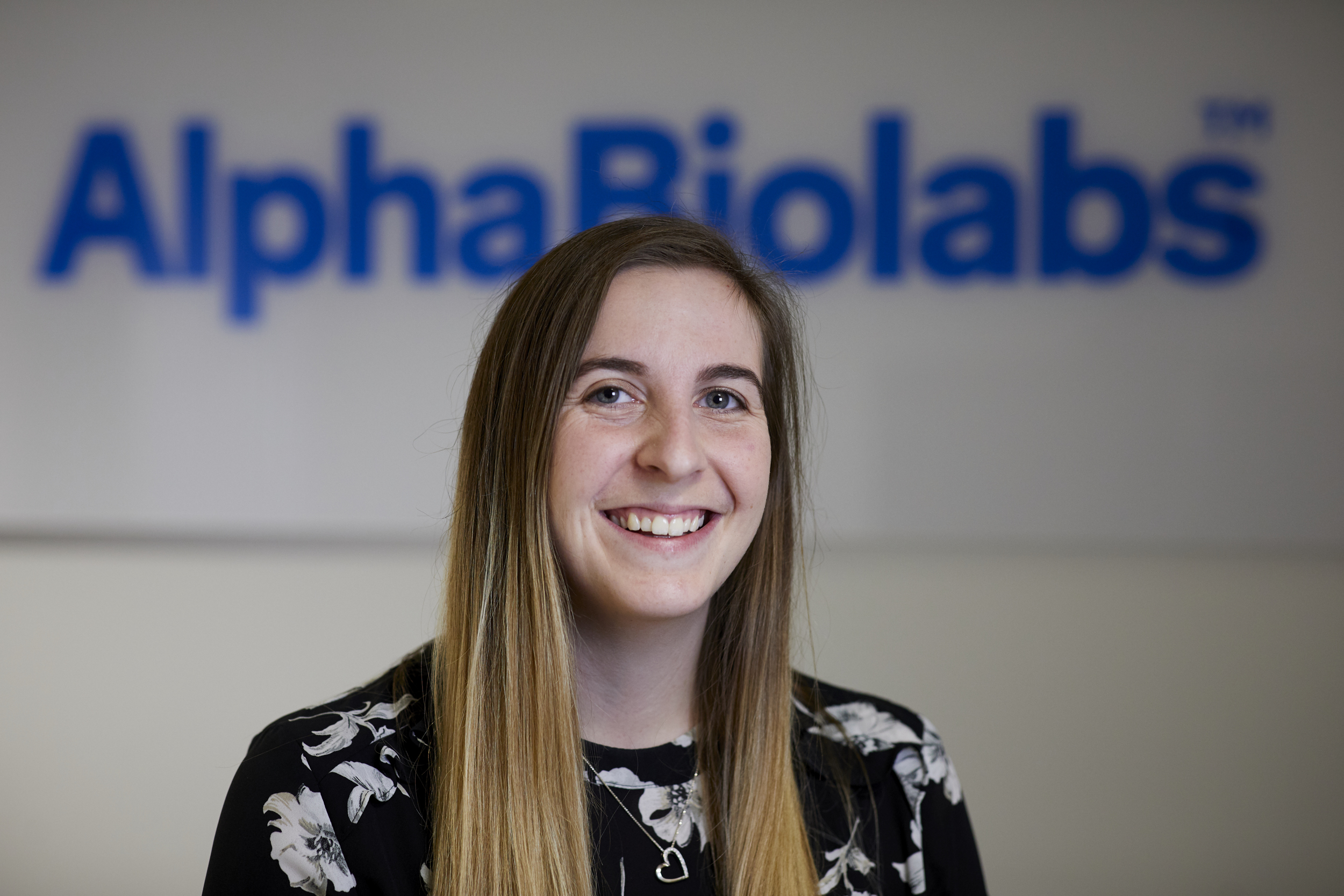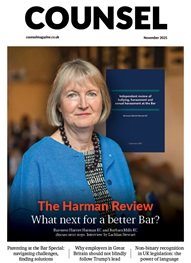*/

News comes as demand for prenatal paternity tests surges by 47% versus pre-pandemic levels
Leading legal DNA testing provider AlphaBiolabs has become the first UK testing laboratory to be awarded accreditation for its non-invasive prenatal paternity testing.
The company, which provides a range of legal testing services including DNA, drug and alcohol testing for local authorities and family law professionals, was awarded ISO 17025 accreditation by the UK Accreditation Service (UKAS) following a two-year validation process.
Beginning in 2019, the AlphaBiolabs DNA team undertook an extensive validation project, ensuring that the company’s prenatal paternity testing methods met the highest possible standards for efficacy, as required by UKAS.
The project was then submitted to UKAS, and an external audit was conducted to ensure the company’s DNA analysis met the criteria for ISO 17025 accreditation, an internationally recognised standard for Testing and Calibration Laboratories.
News of the accreditation comes as figures show demand for prenatal paternity tests is on the rise.
As of 2021, the company recorded a 47% increase in prenatal paternity tests versus pre-pandemic levels*
as more people become aware of the benefits of this innovative, risk-free test.
A non-invasive prenatal paternity test can be carried out from as early as seven weeks into pregnancy, making it possible to determine paternity before a baby is born.
An AlphaBiolabs prenatal paternity test is 100% safe for both mother and baby, as it only requires cheek swabs and a blood sample from the mother and cheek swabs from the father. It is possible to identify the unborn baby’s DNA via the mother’s blood sample, as DNA from the foetus is passed into the mother’s bloodstream via the placenta during pregnancy.
If the man in question is the biological father of the child, the man and baby will share DNA markers.
For childcare proceedings, knowing the biological father of a child in early pregnancy carries significant benefits, enabling local authorities to implement plans for safeguarding where a baby may be at risk of serious harm.
It can also help prevent delays to pre-care, care, or supervision proceedings.
Casey Randall, Head of DNA at AlphaBiolabs, said: “To be the first testing laboratory in the UK to secure this accreditation is a fantastic achievement, and testament to the hard work and dedication of our DNA team.
“Establishing paternity before a baby is born can play a fundamental role in court proceedings, especially in cases where the safeguarding of a child is paramount.
“With the addition of UKAS accreditation, our legal clients can be confident that AlphaBiolabs’ prenatal paternity testing is performed to the highest possible standard for fast, accurate results that they can trust.”
AlphaBiolabs is accredited by the Ministry of Justice to carry out parentage tests as directed by the civil courts in England and Wales under Section 20 of the Family Law Reform Act (1969).
For every legal instruction received throughout 2022, AlphaBiolabs is also donating £5 via its Giving Back campaign, supporting four incredible charities that work with vulnerable children and families across the UK.
* Source: AlphaBiolabs DNA testing data, number of prenatal paternity tests performed (2019-2021)
Further information
Please contact AlphaBiolabs on 0333 600 1300 or email: testing@alphabiolabs.com or visit https://www.alphabiolabs.co.uk

Leading legal DNA testing provider AlphaBiolabs has become the first UK testing laboratory to be awarded accreditation for its non-invasive prenatal paternity testing.
The company, which provides a range of legal testing services including DNA, drug and alcohol testing for local authorities and family law professionals, was awarded ISO 17025 accreditation by the UK Accreditation Service (UKAS) following a two-year validation process.
Beginning in 2019, the AlphaBiolabs DNA team undertook an extensive validation project, ensuring that the company’s prenatal paternity testing methods met the highest possible standards for efficacy, as required by UKAS.
The project was then submitted to UKAS, and an external audit was conducted to ensure the company’s DNA analysis met the criteria for ISO 17025 accreditation, an internationally recognised standard for Testing and Calibration Laboratories.
News of the accreditation comes as figures show demand for prenatal paternity tests is on the rise.
As of 2021, the company recorded a 47% increase in prenatal paternity tests versus pre-pandemic levels*
as more people become aware of the benefits of this innovative, risk-free test.
A non-invasive prenatal paternity test can be carried out from as early as seven weeks into pregnancy, making it possible to determine paternity before a baby is born.
An AlphaBiolabs prenatal paternity test is 100% safe for both mother and baby, as it only requires cheek swabs and a blood sample from the mother and cheek swabs from the father. It is possible to identify the unborn baby’s DNA via the mother’s blood sample, as DNA from the foetus is passed into the mother’s bloodstream via the placenta during pregnancy.
If the man in question is the biological father of the child, the man and baby will share DNA markers.
For childcare proceedings, knowing the biological father of a child in early pregnancy carries significant benefits, enabling local authorities to implement plans for safeguarding where a baby may be at risk of serious harm.
It can also help prevent delays to pre-care, care, or supervision proceedings.
Casey Randall, Head of DNA at AlphaBiolabs, said: “To be the first testing laboratory in the UK to secure this accreditation is a fantastic achievement, and testament to the hard work and dedication of our DNA team.
“Establishing paternity before a baby is born can play a fundamental role in court proceedings, especially in cases where the safeguarding of a child is paramount.
“With the addition of UKAS accreditation, our legal clients can be confident that AlphaBiolabs’ prenatal paternity testing is performed to the highest possible standard for fast, accurate results that they can trust.”
AlphaBiolabs is accredited by the Ministry of Justice to carry out parentage tests as directed by the civil courts in England and Wales under Section 20 of the Family Law Reform Act (1969).
For every legal instruction received throughout 2022, AlphaBiolabs is also donating £5 via its Giving Back campaign, supporting four incredible charities that work with vulnerable children and families across the UK.
* Source: AlphaBiolabs DNA testing data, number of prenatal paternity tests performed (2019-2021)
Further information
Please contact AlphaBiolabs on 0333 600 1300 or email: testing@alphabiolabs.com or visit https://www.alphabiolabs.co.uk
News comes as demand for prenatal paternity tests surges by 47% versus pre-pandemic levels


The Bar Council continues to call for investment for the justice system and represent the interests of our profession both at home and abroad
By Marie Law, Director of Toxicology at AlphaBiolabs
AlphaBiolabs has made a £500 donation to Sean’s Place, a men’s mental health charity based in Sefton, as part of its ongoing Giving Back initiative
Q&A with Tim Lynch of Jordan Lynch Private Finance
By Marie Law, Director of Toxicology at AlphaBiolabs
By Louise Crush of Westgate Wealth Management
Little has changed since Burns v Burns . Cohabiting couples deserve better than to be left on the blasted heath with the existing witch’s brew for another four decades, argues Christopher Stirling
Six months of court observation at the Old Bailey: APPEAL’s Dr Nisha Waller and Tehreem Sultan report their findings on prosecution practices under joint enterprise
Despite its prevalence, autism spectrum disorder remains poorly understood in the criminal justice system. Does Alex Henry’s joint enterprise conviction expose the need to audit prisons? asks Dr Felicity Gerry KC
With automation now deeply embedded in the Department for Work Pensions, Alexander McColl and Alexa Thompson review what we know, what we don’t and avenues for legal challenge
It’s been five years since the groundbreaking QC competition in which six Black women barristers, including the 2025 Chair of the Bar, took silk. Yet today, the number of Black KCs remains ‘critically low’. Desirée Artesi talks to Baroness Scotland KC, Allison Munroe KC and Melanie Simpson KC about the critical success factors, barriers and ideas for embedding change